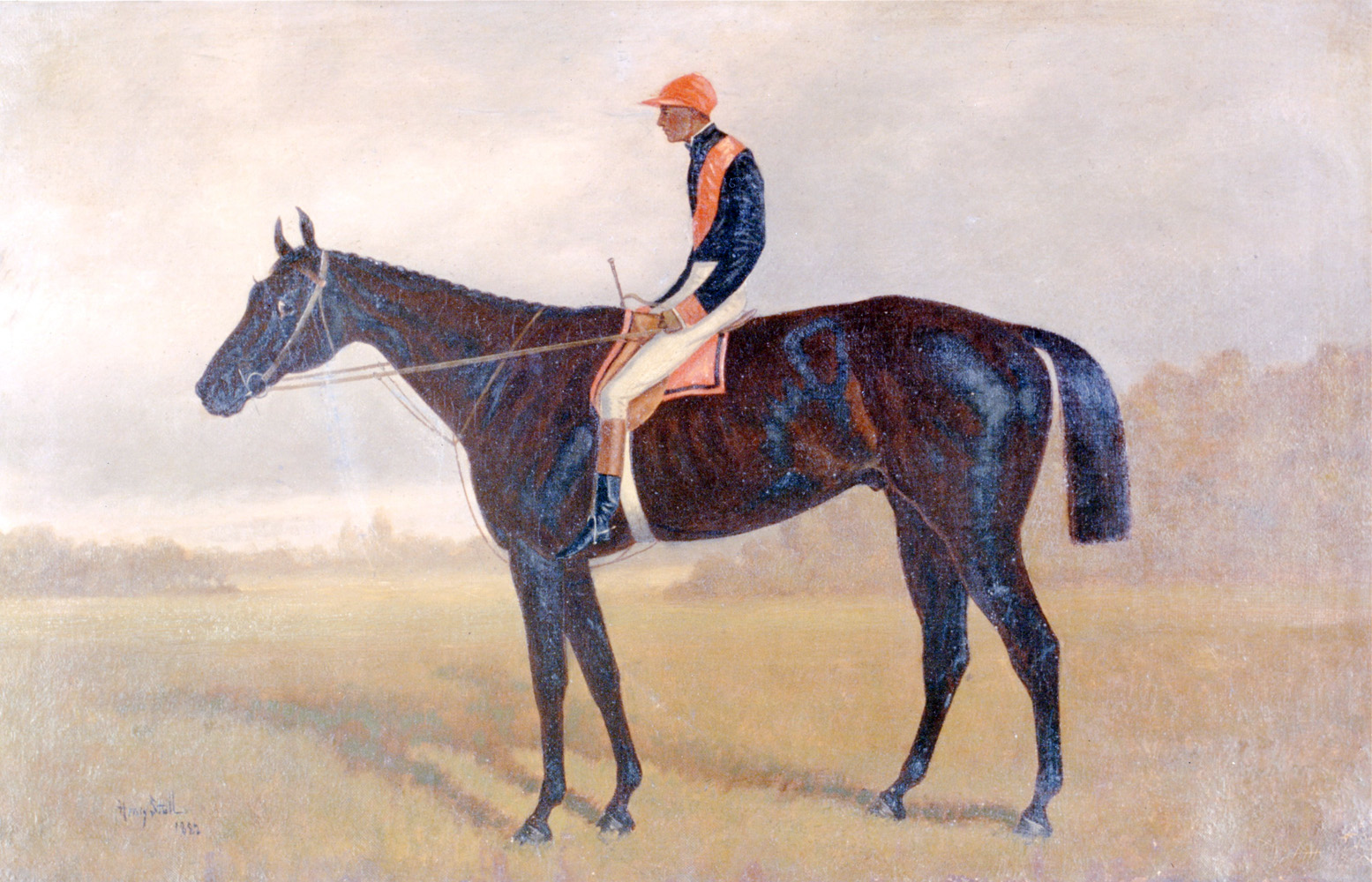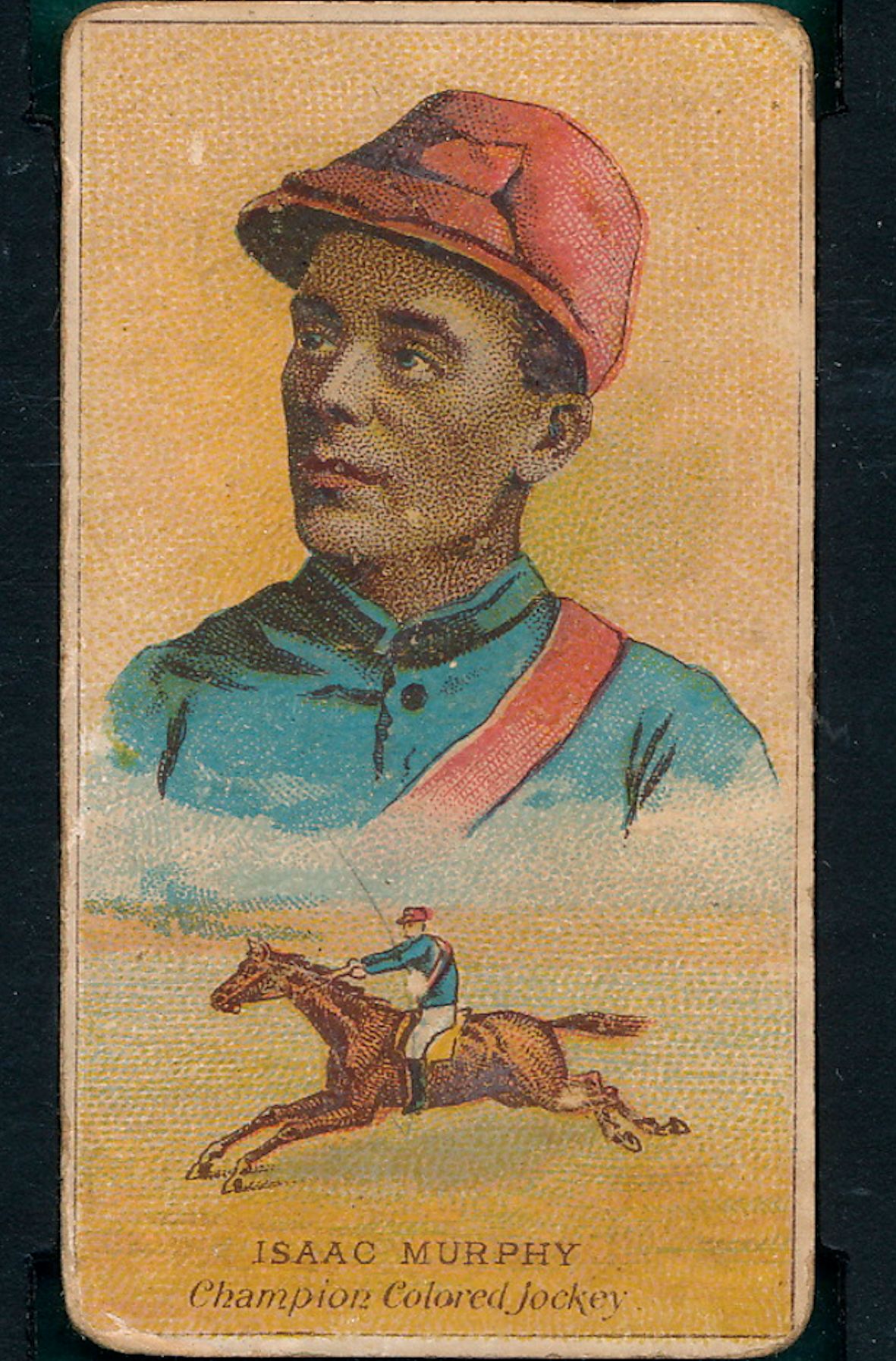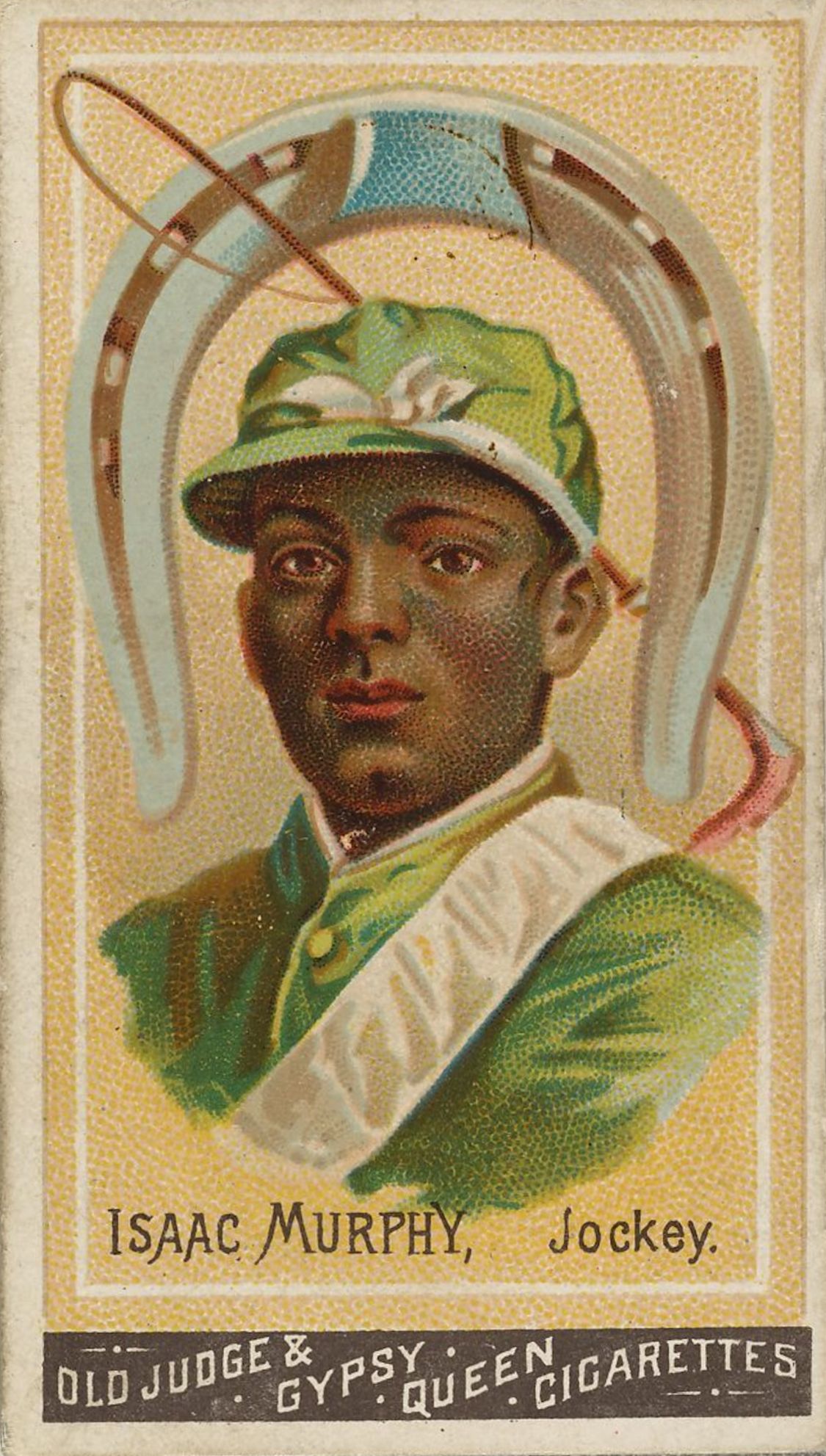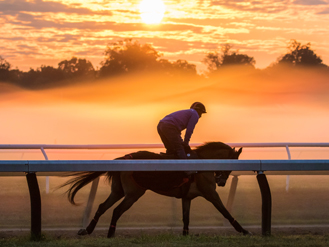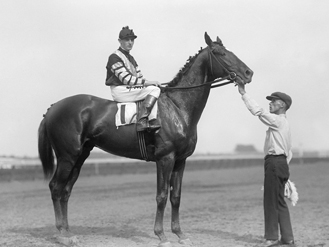Isaac B. Murphy
Isaac Murphy’s remarkable journey through life was defined by both triumphs and tragedies.

1955
Jan. 1, 1861, Frankfort, Kentucky
Feb. 12, 1896, Lexington, Kentucky
1876-1895
530
Racing Record
34.46
Win %
Biography
Isaac Murphy’s remarkable journey through life was defined by both triumphs and tragedies.
Murphy possessed a rare gift for riding thoroughbreds. He made the most of his natural talent, gaining fame, wealth and elite social status that was uncommon for an African-American in the 19th century.
Born on New Year’s Day of 1861 in Frankfort, Kentucky, the son of a former slave who was a Union solider during the Civil War, Murphy grew up around the horse barns at nearby Lexington Stables and became an exercise rider in his youth. At 14, and weighing less than 95 pounds, Murphy was given his first mount as a replacement rider at Churchill Downs. He lost. In fact, he finished dead last. And so began, in unspectacular fashion, the riding career of arguably the greatest jockey the American racing has ever known.
Murphy went on to become the first back-to-back and three-time winner of the Kentucky Derby and was credited by some sources as being victorious in an amazing 44 percent (628 wins from 1,412 mounts) of his career races. Other records credit Murphy with 530 wins from 1,538 mounts, although it is likely many of his races did not appear in chart books.
Murphy rode his first Derby winner in 1884 aboard Buchanan and took back-to-back editions of the race in 1890 aboard Riley and 1891 with Kingman.
In 1891, when jockeys were seldom mentioned in news reports, the Louisville Courier-Journal devoted an entire column to Murphy after his third Derby victory. Kingman was owned and trained by Dudley Allen and has the distinction of being the only horse owned by an African-American to win the Kentucky Derby.
Murphy’s three Derby victories were not equaled until Earl Sande achieved the feat 39 years later in 1930 and not bested until Eddie Arcaro, regarded by many as the top jockey of the 20th century, rode into the picture almost 60 years after Murphy.
The Kentucky Derby, one of the oldest sporting events in America, didn’t have the prestige during Murphy’s time in the saddle that it carries now. Murphy won four editions of the American Derby, which at the time was the biggest race in the country. He also took five runnings of the Latonia Derby and won the Clark Stakes four times.
Saratoga Race Course was another hallowed venue where Murphy displayed his supreme skills. He won the 1879 Travers Stakes aboard Falsetto. That victory catapulted him into the national spotlight for the first time because he defeated Belmont Stakes winner Spendthrift and the famed white jockey Edward Feakes.
After his Travers victory, the Spirit of the Times praised the 18-year-old Murphy’s excellence, stating that Murphy "is one of the best jockeys in America. He is very observant during the progress of a race, keeps a sharp lookout for danger, is quick to perceive the weak points of an adversary, and prompt to take advantage of them. He has a steady hand, a quick eye, a cool head, and a bold heart.”
Murphy’s abilities earned him the best mounts of his era and he was extremely selective of the horses he rode, which aided his superb victory percentage. Murphy also did not approve of jockeys betting and never did so himself. He was confident, handsome, intelligent, physically talented, and the highest-paid athlete in the country. Although he was a superstar, Murphy remained humble and was a quiet soul.
Murphy set much of the style of modern American horse racing. He was one of the first jockeys to use the “grandstand finish,” causing one track observer to quip that “no man with a touch of heart disease should ever back his mounts” because of Murphy’s propensity to steal races near the finish line.
Known as a finesse rider, Murphy rarely used the whip, had strong hands, and extraordinary instincts. Trainer Jack Joyner described Murphy as “the best judge of pace I ever saw.”
Things began to go sour for Murphy at New Jersey’s Monmouth Park in 1890. The New York Times summarized: “A popular idol was shattered at Monmouth Park yesterday. That Isaac Murphy, who has always been considered the most gentlemanly as well as the most honest of jockeys, would have made such an exhibition of himself as he did was past belief. He rode Firenzi in the Monmouth Handicap, and that he did so was alone the reason for the ridiculous way in which she was beaten, finishing last in a field of horses that she should have defeated with but little trouble.”
The article suggested Murphy was “loaded with liquor.” The great jockey appeared dazed and had trouble dismounting after the race, but he adamantly disputed that he rode drunk. There were claims that Murphy had been poisoned before the race it was becoming evident that years of crash dieting to make weight was taking a heavy toll on him.
Murphy bounced back to win his third Kentucky Derby the next year, but his career was starting to slide. He rode less and less during the next few years and his career was through by 1895.
Murphy became a trainer and owned several horses following his retirement from riding. He died of pneumonia on Feb. 12, 1896, at the age of 35. Lung diseases were common among jockeys, whose crash diets and rigid exercise programs led to weaker immune systems that struggled to ward off infections.
The National Turf Writers Association established the Isaac Murphy Award in 1995, which is annually presented to the jockey with the highest win percentage.
Achievements
Triple Crown Highlights
Won the 1884 Kentucky Derby — Buchanan
Won the 1890 Kentucky Derby — Riley
Won the 1891 Kentucky Derby — Kingman
Other Highlights
Won the Latonia Derby — 1883, 1884, 1885, 1886, 1891
Won the Clark Handicap — 1879, 1884, 1885, 1890
Won the American Derby — 1884, 1885, 1886, 1888
Won the Saratoga Cup — 1881, 1886
Won the Alabama Stakes — 1885, 1889
Won the Champion Stakes — 1886, 1890
Won the Travers Stakes — 1879
Won the Kentucky Oaks — 1884
Won the Illinois Derby — 1884
Won the Brooklyn Derby — 1888
Won the Jerome Handicap — 1889
Won the Suburban Handicap — 1890
Won the Gazelle Handicap — 1892
Media
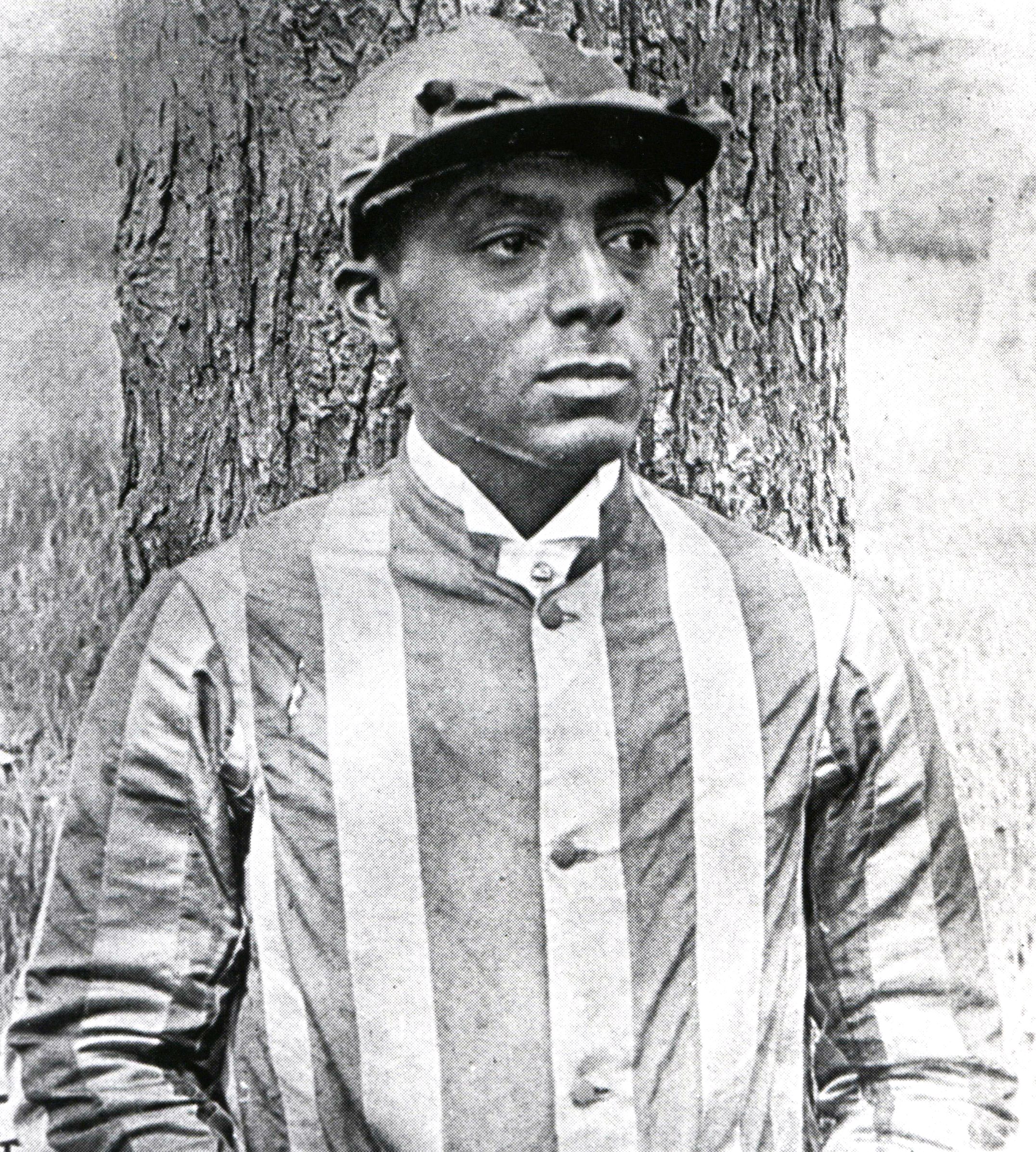
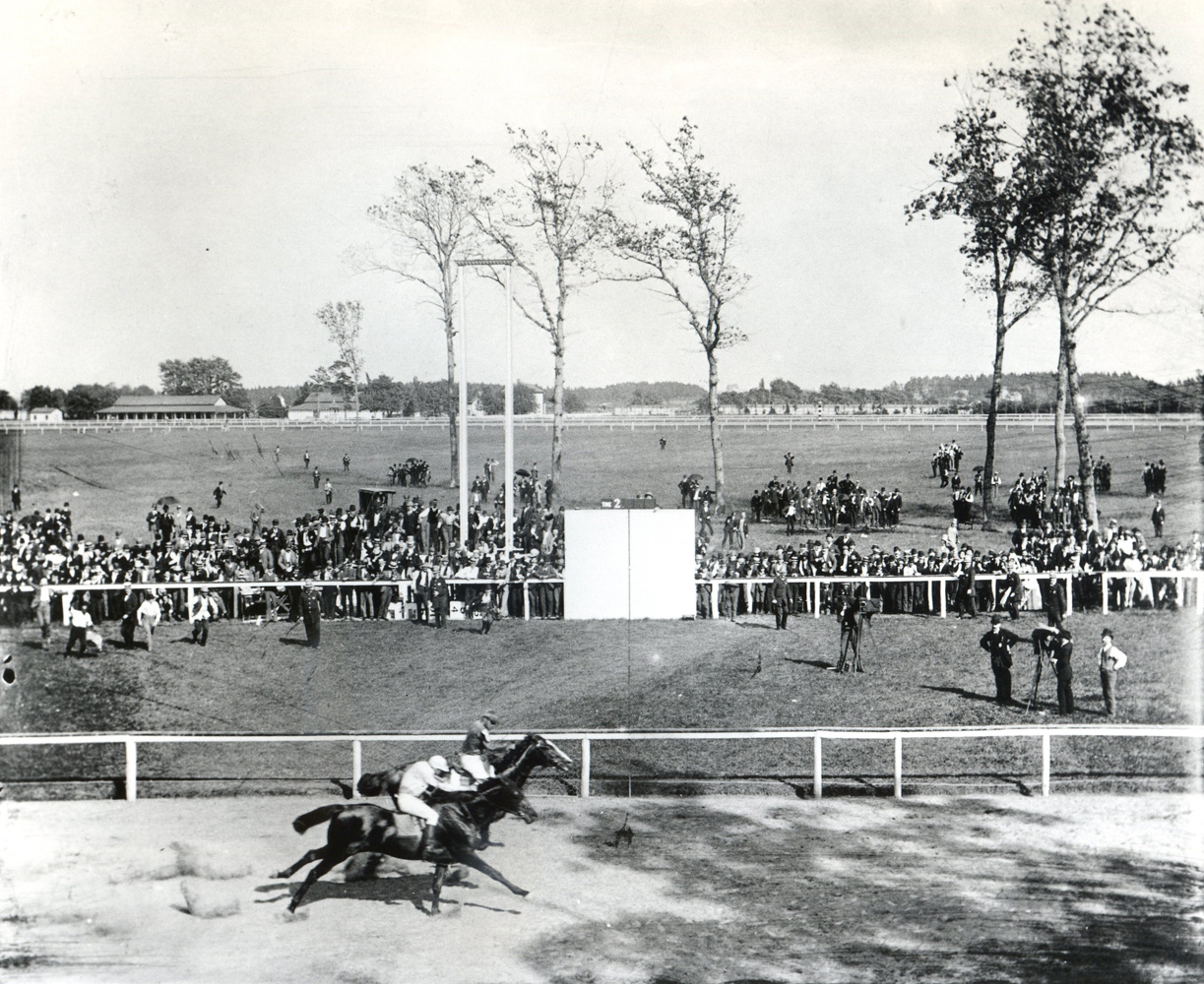
![Isaac Murphy (Library of Congress) Isaac Burns Murphy (Library of Congress, Prints & Photographs Division, [LC-USZ62-50261])](https://racingmuseum.org/sites/default/files/hall-of-fame/jockeys/Isaac%20Murphy-Library%20of%20Congress.jpg)
